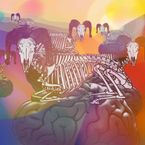The use of AI in education and medicine
According to experts from the Center for Cardiovascular Science at the University of Edinburgh, artificial intelligence can significantly improve the accuracy of heart attack diagnoses and reduce the burden on emergency departments. Compared to current testing methods, an AI-based algorithm called CoDE-ACS can rule out heart attacks in more than twice as many patients with an accuracy of 99.6%. The algorithm could also help eliminate dangerous inequalities in disease diagnosis. This AI tool is effective regardless of age, gender or pre-existing medical conditions.
According to the UK Secretary of State for Education, artificial intelligence can significantly change schools and take the burden of assessment and timetable off teachers. Thanks to this, teachers could focus on what AI cannot replace them in – direct teaching of students at school.
Researchers at the University of Gothenburg have investigated how advanced artificial intelligence systems affect our trust in the people we interact with. AI has more and more human features, and one of the key ones is the voice, which creates a sense of intimacy and makes us infer the other person’s gender, age and socio-economic background. Therefore, the researchers propose creating an AI with well-functioning and eloquent voices that are still clearly synthetic, which will increase the transparency of the reception. It makes it easier to recognize whether we are talking to a human or an artificial being.



























